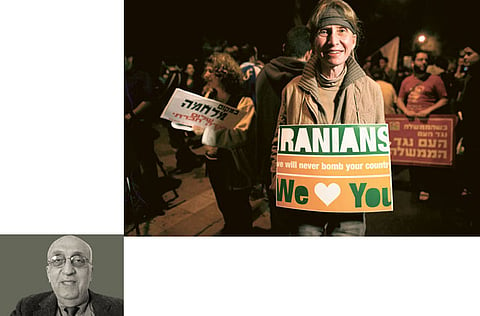Israel losing US support
More American Jews led by vociferous organisations are speaking out against Tel Aviv's brutal policies in the Occupied Territories

A deep fissure within the influential Jewish community — numbering more than five million — has lately become more apparent, and surprisingly over Israeli policies. This raises concerns whether Israel can continue to bank on full American support.
The issue that has troubled many countries and communities elsewhere, even the American Jewish community, is the relentless usurping of Palestinian land by Israeli colonists with the obvious approval of the Israeli government. To date, there are more than 300,000 Israeli colonists in the West Bank and another 200,000 in occupied Jerusalem, home to more than a quarter million Palestinians.
The rift within the Jewish community has, for the first time, attracted some key publications like Newsweek and got considerable exposure on television networks and social media like Facebook and Twitter. This open debate has been fuelled by forceful and critical Jewish organisations like J-Street and overwhelming websites like Mondoweiss.
Among its aims, Mondoweiss lists "foster[ing[ the movement for greater fairness and justice for Palestinians in American foreign policy", and "offer[ing] alternatives to pro-Zionist ideology as a basis for American Jewish identity". This blog is co-edited by Philip Weiss and Adam Horowitz, two American Jewish writers.
Despite the growing rift, Israel is repeatedly assured of the continued support of her Jewish critics within these liberal organisations and groups. This is true of its most recent detractor Peter Beinart, who has gained wide attention after the publication of his recent book, The Crisis of Zionism.
But amazingly, the US media, by and large, has continued to maintain its timidity towards Israeli governments, especially the one currently led by Benjamin Netanyahu which is aggressively supporting Israeli colonists.
There is no doubt that the Obama administration has shelved the Palestinian-Israeli issue for now due to the presidential election campaign which is heating up. Equally crippling has been the surprise election of a new leader of Tzipi Livni's Kadima party, Shaul Mofaz, a former defence minister, who was recently described by an Israeli columnist as "cruel" since "no less than 1,705 Palestinians were killed on his watch, including 372 children and teens and 191 targeted killings ..."
An additional complication was voiced last Sunday by two leading members of the pro-Israel Washington Institute for Near East Policy (WINEP), who advocated in a column in the Washington Post that "there is a need to assuage the Israel fear that [the upcoming negotiations — on April 13 — between Iran and the five members of the UN Security Council] will drag on beyond a point which Israel would lose its military option".
Dennis Ross, now a counsellor at WINEP, and David Makovsky argued that "it is reasonable for [Israel] to have some input into the objectives of diplomacy and timetable for progress in negotiations".
In other words, they continued, "the more Israel feels their views are being taken into account, the more inclined they will be to give diplomacy a chance to work before resorting to force".
This complicating view misses the key point raised by Beinart that initiated the serious division within the American Jewish community. His main point in the book — and several interviews in the press and on the air — is that Israel is "sleepwalking to a one-state solution" and that other efforts to slow or stop settlement [colony] expansion are "miserably failing".
Interestingly, Beinart believes that Israelis should boycott all goods produced by West Bank colonies. An American citizen whose grandmother lives in Egypt, Beinart explained in a radio interview: "If Israel holds that [West Bank] territory permanently and does not give the right of citizenship and the right to vote to the Palestinians living there, it will no longer be fully a democratic state. If it does, it will no longer have a Jewish majority and will no longer be a Jewish state and therefore our generation will have failed our responsibility to pass down to our children what our parents gave to us — a precious legacy — the democratic Jewish state."
George S. Hishmeh is a Washington-based columnist. He can be contacted at ghishmeh@gulfnews.com


